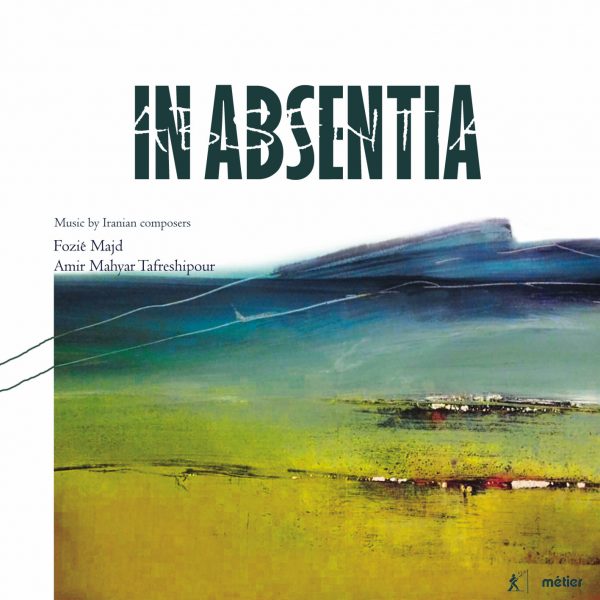The Arts Desk
This album serves as a record of a friendship between two composers of different generations as well as a useful introduction to Iranian classical music. What we learn in the notes about the lives and careers of the two composers is, by necessity, brief – like me, you’ll probably turn to Google. Fozié Majd, born in 1938, initially trained in Edinburgh before moving to Paris to study with Nadia Boulanger. Hailed in the 1970s as a leading light in Iranian contemporary music, the Islamic Revolution interrupted Majd’s compositional career for nine years, though she’s been internationally active since 1988. The two works here reflect her ethnomusicological work, both assimilating elements of traditional Persian music. Dreamland, for string quartet, takes inspiration from the modal Dastgah system, Majd suggesting the modes with microtones. It’s remarkable how quickly one’s ears adjust: the lyrical writing near the close of the long second movement is really striking. Farãghi (In Absentia), is an extended duet for violin and cello and a meditation on the sorrow of separation, both romantic and spiritual. Listening to it is an overwhelming, occasionally painful experience, though Majd’s technical skills go hand in hand with a warmth of expression that’s winning.
Her works are paired with two works by Amir Mahyar Tafreshipour, born in 1974. His recent string quartet Broken Times is dedicated to Majd. The allusions to Persian music are less overt in what’s described as a slow progression from light to darkness. Not that the work is depressing; Tafreshipour seems to be describing something inevitable and cyclic (“when one gets to the end, the music could begin all over again”). Pendar, for solo violin, is one of a series of solo works written for orchestral instruments, seven minutes of compelling soliloquising with an oblique close. This disc succeeds in part because the performances are so vivid; violinist Darragh Morgan and cellist Dierdre Cooper are outstanding in their solo numbers, supported by Patrick Savage and Fiona Winning in the quartet pieces. Fascinating and surprising: who’d have imagined that modern Iranian music would sound quite like this?
@divineartrecordingsgroup
A First Inversion Company
Registered Office:
176-178 Pontefract Road, Cudworth, Barnsley S72 8BE
+44 1226 596703
Fort Worth, TX 76110
+1.682.233.4978




![🎧 Listen now to the @purcellsingers' first single from their upcoming album, #ASpotlessRose! ➡️ listn.fm/aspotlessrose [in bio]](https://scontent-dfw5-2.cdninstagram.com/v/t51.71878-15/642752592_1424641949105789_8815810652567824072_n.jpg?stp=dst-jpg_e35_tt6&_nc_cat=106&ccb=7-5&_nc_sid=18de74&efg=eyJlZmdfdGFnIjoiQ0xJUFMuYmVzdF9pbWFnZV91cmxnZW4uQzMifQ%3D%3D&_nc_ohc=aY1NGfNpOoYQ7kNvwE1rryo&_nc_oc=AdmnZwuLFYSJYDLdgoH7LrmXVJ36fiWWmElyEQI7Jx3iS6WF2Po81uN3dFsXm5IatNU&_nc_zt=23&_nc_ht=scontent-dfw5-2.cdninstagram.com&edm=ANo9K5cEAAAA&_nc_gid=mef7a5ibTFksrSQDg6T5sg&_nc_tpa=Q5bMBQEHfXyCRldqLJoZ5QX8FFzqI_Ripc_XwGxptKC6XUwFXaKjoYycYoztPtCDoe1Ncl2yPns9SRm61w&oh=00_Afxk8QFx_4xxQQY6c-X5OSOKl0-xD2y6Qgjb2SvaZ4X1bA&oe=69AE2BC1)







